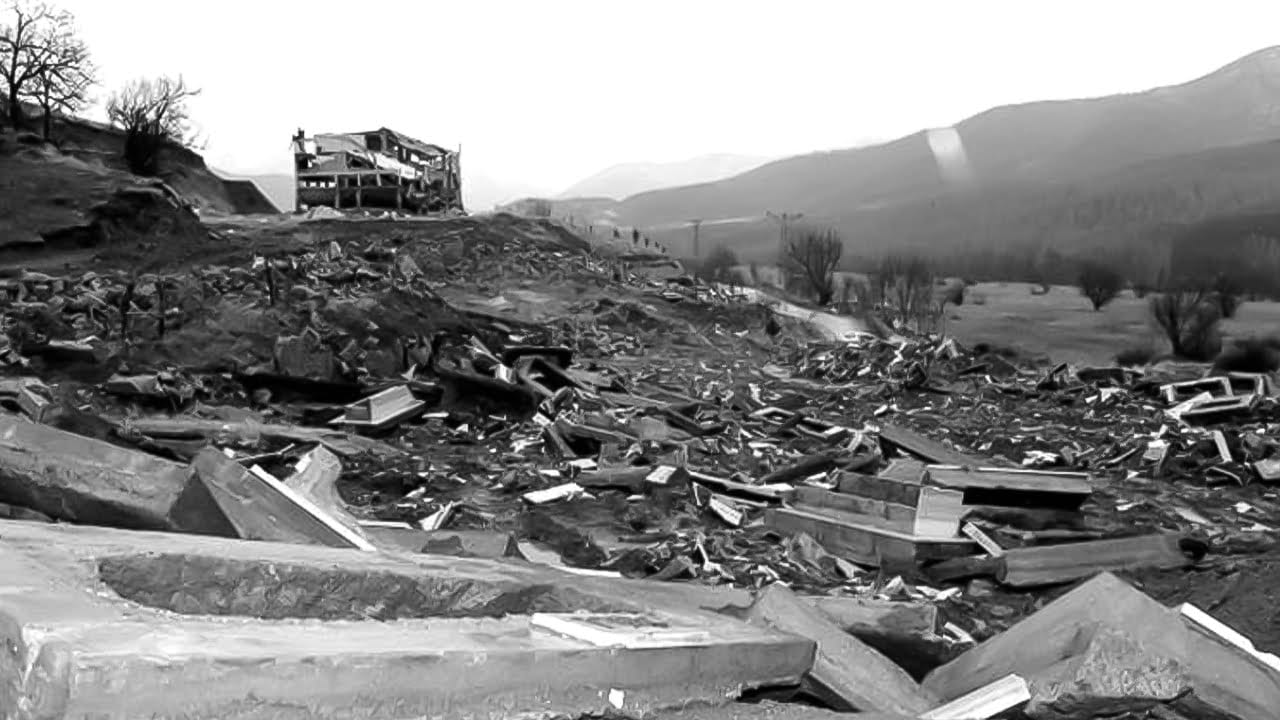by Uğur Deniz
“While the funeral of a Jew is being prepared in Medina, the Prophet Muhammed stands up. The people around the Prophet ask ‘why are you doing this?’ Our Prophet replied, ‘he was a human being’. Ya, that’s what we are!”
Turkish President Recep Tayyip Erdoğan criticised the famous French satirical magazine Charlie Hebdo with these words on 22 October, after the magazine published a caricature of him on the front page. While Erdoğan uses this as an example of “respect for the dead”, the bodies of eight PKK fighters who died in battle have been kept in the morgue of a hospital in Şırnak for more than a month. Moreover, cemeteries in Kurdish cities have been destroyed and the dead have been displaced.
As a matter of fact, attacks on the dead bodies of PKK guerrillas and cemeteries are not new. These attacks also took place in the 1990s, when the conflict between the Turkish state and the PKK was harsh and unsolved murders were at the highest level. Moreover, the history of attacks on the dead goes back to before the 90s. Kurdish leaders such as Sheikh Said and Seyit Rıza, killed in the 1920s and ’30s, still have no graves.

With the start of peace talks between the state and the PKK in Turkey, attacks stopped for a short time between 2013 and 2015. During this period, graves and mausoleums were built for those who died in the ’90s. However, since the collapse of peace talks in 2015, the attacks started to increase and intensify.
Cemeteries, graves and funerals have been under constant attack since 2015. These attacks continue in different ways, such as not returning the bodies of deceased people to their families, disallowing funerals even if the bodies are returned, moving bodies to different cities, or even destroying the cemeteries.
In the last five years, there has been such an increase in attacks on cemeteries and displacements of the dead that aggregated data is not yet available. There are associations that specialise in studying this field, but they are either closed or blocked. However, some examples that have come to the fore in the Kurdish press in the last year allow us to have an idea of the scale.
 Halise Aksoy, who received the body of her child by cargo, said: “They sent my son’s bones by PTT cargo. I bought the package by signature”.
Halise Aksoy, who received the body of her child by cargo, said: “They sent my son’s bones by PTT cargo. I bought the package by signature”.
The bones of Agit İpek, who died in a conflict in Dersim in 2017, were sent to his family in Diyarbakır in April 2020. The investigation, which was initiated upon the family’s criminal complaint, concluded with non-prosecution on the grounds that “the transaction was in accordance with the regulations”.
In 2017, 267 bodies were taken from Garzan Cemetery in Bitlis. It was revealed in May 2020 that these bodies were buried one on top of the other on a highway in Kilyos, İstanbul. A cemetery in the Yüksekova district of Hakkari has been attacked almost every year after 2015, so families started to consider taking the bones of their children and bringing them home. The series of attacks against the cemetery in the Orman district continued during the pandemic period. After the seventh attack on the cemetery, a mother whose child’s grave was destroyed called out to the state: “What do you want from our children, the people who died?”
What does the state want from the dead?
The answer to this question is provided by Derya Aydın. Aydın is an anthropologist who conducted extensive research on the construction and destruction process of PKK cemeteries between 2014 and 2017. Her research focuses on cemeteries and mourning processes, and its reflections on Kurdish society. Aydın states that even though the destroyed cemeteries are places of death, they are also memory spaces where the ideals of those who died at a young age are accumulated. According to her, the state knows this truth and therefore “wants to kill the dead again, eliminate them, break their influence, and destroy them”.
 Bodies buried on a sidewalk in İstanbul after being removed from Garzan Cemetery in Bitlis
Bodies buried on a sidewalk in İstanbul after being removed from Garzan Cemetery in Bitlis
As Aydın pointed out, attacks on the Kurdish dead are in effect a state policy. Achille Mbembe, a political scientist, historian, and one of the leading post-colonial approach theorists, called this policy “necro-politics”. As the executive, the necro-power has the power to decide who will die and live. The power in Turkey is also in a position to decide whose dead will count as truly “dead”.
In 2018, while Turkey’s attacks on Afrin in Northern Syria continued, it is important to remember Tayyip Erdoğan’s words in Bitlis, the city where hundreds of graves were opened and the dead were exhumed: “Where are those fake graves now?” Contrary to Erdoğan’s accusation, the displaced bodies were found on a sidewalk in İstanbul in May, as a result of investigations by the Mesopotamia Agency reporter Erdoğan Alayumat.
**An interview with anthropologist Derya Aydın, on cemetery attacks, necro-politics, mourning and resistance will follow in the next chapter…










